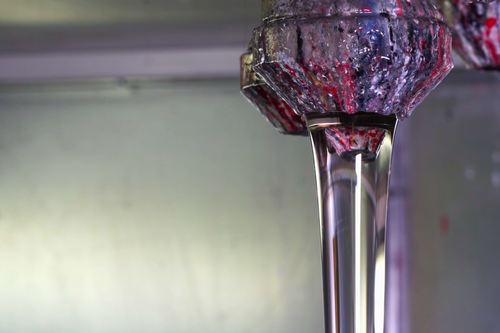TUESDAY, AUGUST 1, 2023
Supplier of coil coatings and industrial paints Beckers Group is reportedly collaborating with suppliers to include raw materials made from recycled plastics into its paint.
The company says that is working alongside circular technology developer BioBTX and small molecule contract research and manufacturing organization Symeres in an effort to create a supply chain for the sustainable aromatic monomers made from plastic waste.
BioBTX has reportedly developed a method for turning waste plastic into benzene, toluene and xylene (BTX), which Symeres then takes to oxidize the xylenes into aromatic phthalic monomers to create resins.
According to a release from Beckers, phthalic anhydride, an aromatic acid, makes up about 40-50% of the resins in which it is present for polyester resin production. Beckers reports that phthalic anhydride produced by this method can be used as a drop in for existing phthalic anhydride produced from petroleum.
The pilot reportedly involves processing mixed plastic waste into sustainable chemical building blocks and products, using multiple sustainable chemical conversions. This also includes the unique Integrated Cascading Catalytic Pyrolysis (ICCP) technology to convert mixed waste plastics and biomass into aromatics such as benzene, toluene and xylenes.
Beckers says that it is particularly interested in xylenes, which can be oxidized to produce monomers, such as phthalic anhydride, to be used in polyester resins for coatings.

 |
| Beckers Group |
|
Supplier of coil coatings and industrial paints Beckers Group is reportedly collaborating with suppliers to include raw materials made from recycled plastics into its paint. |
“Nobody has ever created a coil coating containing phthalic anhydride made from plastic waste, so this world first is an important step forward in terms of producing more sustainable resins and paints,” said Julien Marquiant, Resin Lab Manager at Beckers. “It really is a game changer for us and our ability to incorporate high-quality materials made from plastic waste.”
“In order to reach a fully circular economy, we will need to make use of all different types of carbon resources to substitute for all the fossil resources used nowadays,” said Ton Vries, Managing Director at BioBTX.
“The collaboration with Beckers proves that circular solutions can already be realized if parties from different industries join forces. In this case it does not only prevent the plastic waste from growing, it also simultaneously substitutes the need for fossil-based resources.”
Beckers notes that while the pilot is still being developed, it could have “significant” sustainability benefits. This includes upcycling thousands of tons of waste plastic, as well as reducing white coating carbon emissions by at least 10%, according to early estimates.
Symeres is reportedly looking for a potential partner to develop and license this technology over the next three to five years. Additionally, the quality and suitability of the phthalic anhydride produced by Symeres using the BioBTX xylene will be validated by Beckers.
Recent Beckers News
Last month, Beckers released its Life Cycle Assessment results that reportedly showed that the use of ultraviolet/electron beam curing technology could significantly reduce the environmental impacts of the coating process.
According to the company, the recent LCA tests performed by Becker revealed that this new technology has the potential to “revolutionize” the coil coatings industry.
Beckers conducted LCA tests for “conventional solvent-borne and water-based” coil coating techniques, in addition to UV/EB technology. The LCAs were reportedly made as comparable as possible, simulating the same coating system, thickness and coil coating line speed, from “cradle to coil customer’s gate.”
The assessments included the manufacturing of the coating, its component raw materials and the customer’s coil coating process for each technique. Excluded from the LCAs, however, were steel manufacturing, the end use of the coil coated product and its end of life, since they were “outside of Beckers' sphere of influence.”
Beckers states that this is the first time a comparable LCA between three different coating application processes has been conducted. Real-world industrial coil coating line data from the European Coil Coating Association (ECCA) and some coil coaters was used for standard coating technologies, while UV/EB was sourced from Beckers’ own development work and from a “specialized UB/EB equipment manufacturer.”
The LCA study reportedly highlighted significant sustainability benefits for UV/EB coil coating compared to conventional techniques.
The company states that the results from LCA testing not only show the usefulness of UV/EB technology but will also help them improve the way they work with sustainability through further developing their tools. After the LCAs, Beckers says that they saw the need to “refine” their sustainable product development tool—The Becker Sustainability Index—to include customer processes.
Tagged categories: Beckers Group; Business operations; Carbon footprint; Coating chemistry; Coating Materials; Coating Materials - Commercial; Coatings raw materials manufacturers; Coatings Technology; Green coatings; Polyester; Program/Project Management; Raw materials; Recycled building materials; Renewable raw materials; Research and development; Resins; Sustainability